
Dingle: A Charming Coastal Gem
Dingle, located on the rugged southwest coast of Ireland, is a picturesque town known for its vibrant culture and stunning landscapes. Nestled in County Kerry, this charming destination offers a mix of natural beauty, rich history, and warm hospitality that captivates every visitor. The town itself is a delightful blend of colorful buildings, traditional pubs, and quaint shops. Strolling through the narrow streets, you'll find yourself immersed in a lively atmosphere, often accompanied by the sounds of live Irish music. Dingle's harbor is bustling with activity, as fishing boats come and go, adding to the town's authentic maritime charm. Nature enthusiasts will be thrilled by the breathtaking scenery that surrounds Dingle. The Dingle Peninsula is home to some of Ireland's most stunning coastal views, with dramatic cliffs, sandy beaches, and lush green hills. The iconic Slea Head Drive offers a scenic route that showcases the peninsula's natural beauty, with plenty of photo opportunities along the way. For history buffs, Dingle has a rich heritage waiting to be explored. The area is dotted with ancient sites, including the Gallarus Oratory, a remarkable stone church dating back to the early Christian period. The Blasket Islands, just off the coast, offer a glimpse into the traditional way of life that once thrived in this remote part of Ireland. Foodies will also find much to love in Dingle. The town boasts a vibrant culinary scene, with an emphasis on fresh, locally sourced ingredients. Seafood is a highlight, with many restaurants serving up delicious dishes featuring the catch of the day. Don't miss the chance to sample some of the town's famous seafood chowder or indulge in a scoop of creamy Dingle ice cream.
Local tips in Dingle
- Visit during the Dingle Food Festival in October to experience local cuisine and vibrant food markets.
- Take a boat tour to see Fungie the dolphin, a beloved local resident known for his playful antics.
- Wear comfortable walking shoes for exploring the town and surrounding natural trails.
- Plan a visit to the Dingle Distillery for a taste of locally crafted whiskey and gin.
- Bring layers of clothing as the coastal weather can be unpredictable, with sudden changes in temperature and wind.
Dingle: A Charming Coastal Gem
Dingle, located on the rugged southwest coast of Ireland, is a picturesque town known for its vibrant culture and stunning landscapes. Nestled in County Kerry, this charming destination offers a mix of natural beauty, rich history, and warm hospitality that captivates every visitor. The town itself is a delightful blend of colorful buildings, traditional pubs, and quaint shops. Strolling through the narrow streets, you'll find yourself immersed in a lively atmosphere, often accompanied by the sounds of live Irish music. Dingle's harbor is bustling with activity, as fishing boats come and go, adding to the town's authentic maritime charm. Nature enthusiasts will be thrilled by the breathtaking scenery that surrounds Dingle. The Dingle Peninsula is home to some of Ireland's most stunning coastal views, with dramatic cliffs, sandy beaches, and lush green hills. The iconic Slea Head Drive offers a scenic route that showcases the peninsula's natural beauty, with plenty of photo opportunities along the way. For history buffs, Dingle has a rich heritage waiting to be explored. The area is dotted with ancient sites, including the Gallarus Oratory, a remarkable stone church dating back to the early Christian period. The Blasket Islands, just off the coast, offer a glimpse into the traditional way of life that once thrived in this remote part of Ireland. Foodies will also find much to love in Dingle. The town boasts a vibrant culinary scene, with an emphasis on fresh, locally sourced ingredients. Seafood is a highlight, with many restaurants serving up delicious dishes featuring the catch of the day. Don't miss the chance to sample some of the town's famous seafood chowder or indulge in a scoop of creamy Dingle ice cream.
When is the best time to go to Dingle?
Iconic landmarks you can’t miss
Dingle Oceanworld Aquarium
Explore the vibrant marine life at Dingle Oceanworld Aquarium, a captivating tourist attraction in Co. Kerry, Ireland, perfect for families and ocean lovers alike.
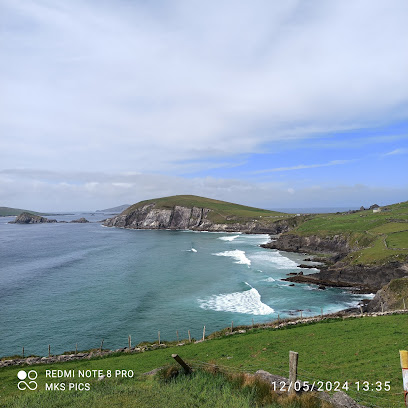
Dick Mack's Pub
Discover the heart of Dingle at Dick Mack's Pub, where great beer, live music, and Irish culture come together in a historic setting.
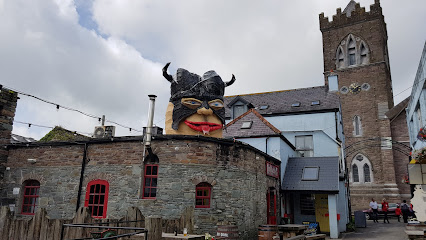
Dingle Dolphin Boat Tours
Experience the breathtaking beauty of Dingle Bay with Dingle Dolphin Boat Tours, where adventure and nature come together in perfect harmony.
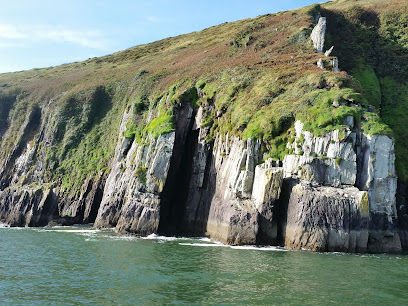
Murphy's Pub, Bed & Breakfast
Discover the heart of Dingle at Murphy's Pub and Bed & Breakfast, where Irish hospitality meets culinary delight in a cozy atmosphere.

Murphys Ice Cream
Experience the finest artisanal ice cream in Dingle, Co. Kerry, where unique flavors and local ingredients come together for an unforgettable treat.
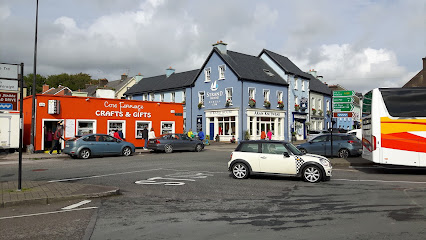
Out of the Blue
Discover the freshest seafood at Out of the Blue, a must-visit restaurant in Dingle, Co. Kerry, offering a delightful taste of Ireland's coastal treasures.
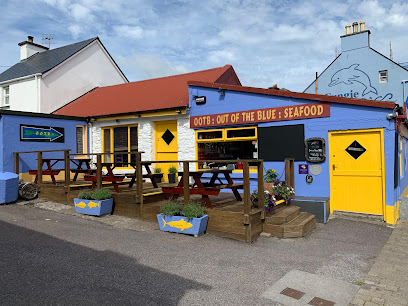
Paul Geaney's Bar & Restaurant
Discover the heart of Dingle at Paul Geaney's Bar & Restaurant, where authentic Irish flavors and warm hospitality await.
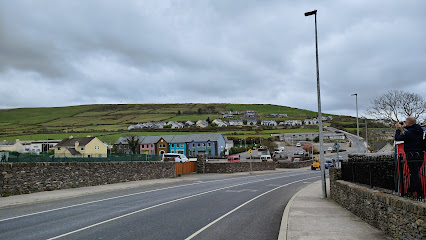
The Boatyard Restaurant
Relish the freshest seafood in Dingle at The Boatyard Restaurant, where local ingredients meet stunning coastal views.
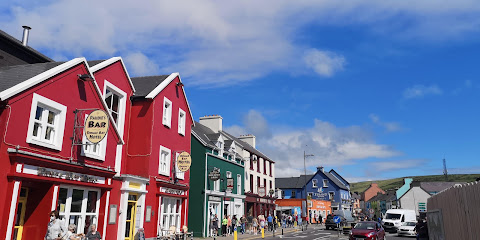
Dingle Sea Safari
Experience the breathtaking Dingle Sea Safari for an unforgettable adventure along Ireland's stunning Wild Atlantic Way.
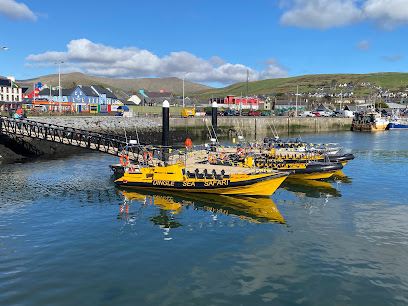
Danno's Restaurant & Bar
Experience the flavors of Dingle at Danno's Restaurant & Bar, where local cuisine meets a warm, inviting atmosphere.
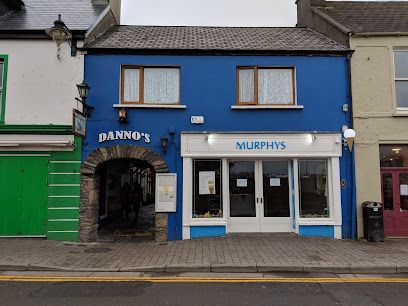
An Droichead Beag
Experience the heart of Irish culture at An Droichead Beag, a vibrant pub in Dingle, where local music and delicious cuisine await you.
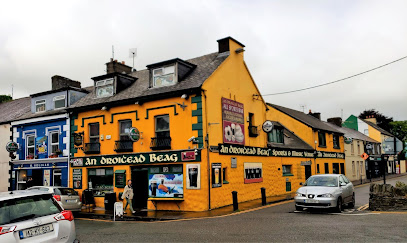
Conor Pass waterfall
Experience the breathtaking beauty of Conor Pass Waterfall in County Kerry, a perfect natural retreat for nature lovers and adventurers alike.
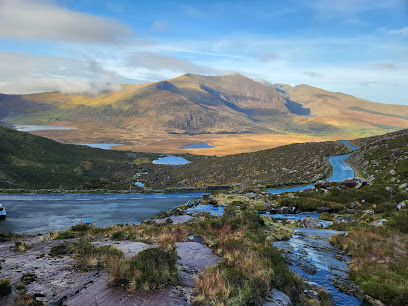
O'Sullivan's Courthouse Pub
Discover O'Sullivan's Courthouse Pub in Dingle - where live music and traditional Irish hospitality come together for an unforgettable experience.
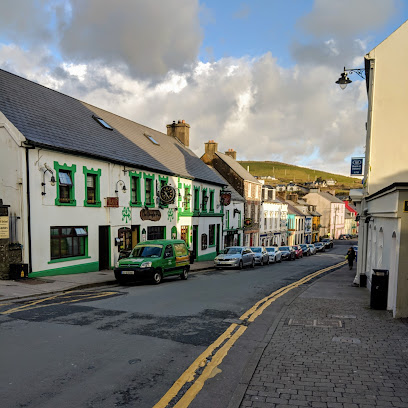
Dingle Boat Tours
Discover the stunning beauty of Dingle, Co. Kerry, with unforgettable boat tours showcasing scenic views and rich marine life.
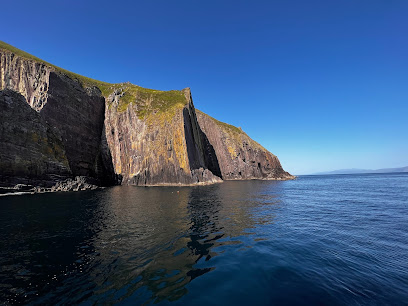
Fairy Fort Ringfort
Discover the enchanting Fairy Fort Ringfort in Dingle, Co. Kerry, a historic site steeped in folklore and surrounded by stunning landscapes.
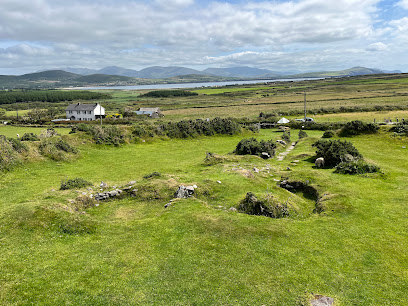
Unmissable attractions to see
Kerry Cliffs (Aillte Chiarraí)
Explore the dramatic landscapes of Kerry Cliffs, where breathtaking views meet rich biodiversity along the stunning Skellig Ring in County Kerry, Ireland.
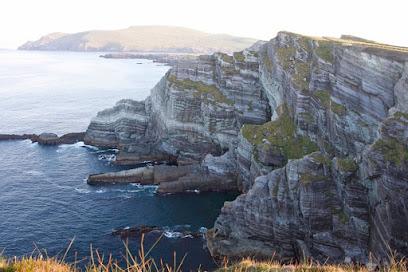
An Chonair / Conor Pass
Discover the breathtaking beauty of Conor Pass in County Kerry, Ireland, a must-visit destination for stunning landscapes and unforgettable experiences.
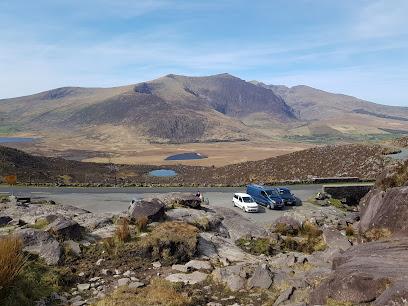
Coumeenoole Beach
Explore the stunning Coumeenoole Beach in Co. Kerry, where breathtaking views, tranquil sands, and rich history unite on the Dingle Peninsula.
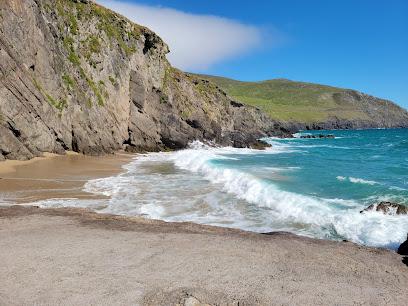
Kate Kearneys Cottage
Discover the enchanting Kate Kearney's Cottage at the Gap of Dunloe, where Irish hospitality meets breathtaking landscapes and delicious cuisine.
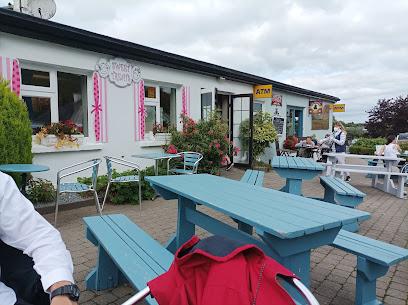
Cé Dhún Chaoin / Dunquin Pier
Explore the stunning vistas and rich heritage at Cé Dhún Chaoin / Dunquin Pier in County Kerry, a top scenic spot on Ireland's west coast.
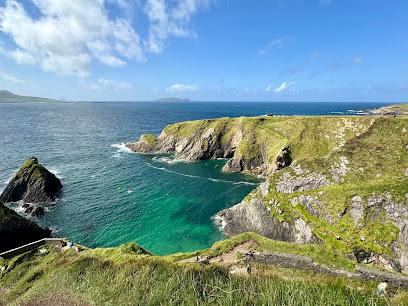
Dingle Dolphin Boat Tours
Experience the breathtaking marine life of Dingle Bay with unforgettable boat tours featuring playful dolphins and stunning coastal views.
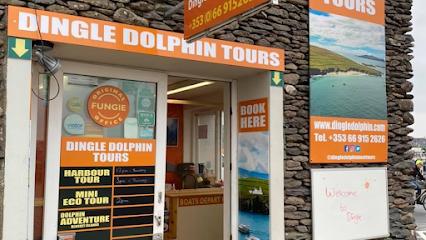
The Kerry Bog Village Museum
Discover Ireland's rich cultural heritage at The Kerry Bog Village Museum in Co. Kerry, where history comes alive amidst stunning bog landscapes.
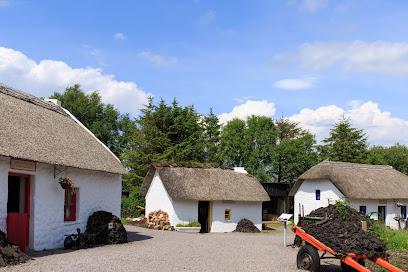
The Blasket Centre
Explore Irish Heritage at The Blasket Centre: A Cultural Treasure in Dunquin, Co. Kerry, Showcasing the Rich History of the Blasket Islands.
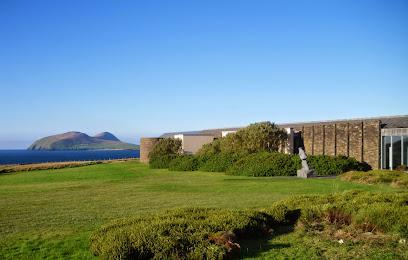
Dingle Peninsula
Discover the stunning Dingle Peninsula in Co. Kerry, where dramatic cliffs meet rich culture and breathtaking landscapes await every traveler.
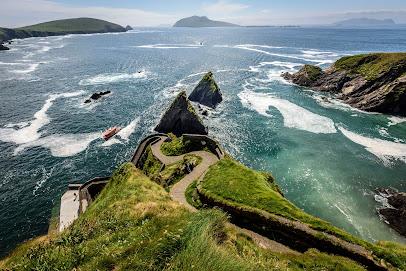
Com an Chiste Ring of Kerry Lookout and Car Park
Experience the breathtaking views and stunning landscapes at Com an Chiste Lookout on the famous Ring of Kerry in Co. Kerry, Ireland.
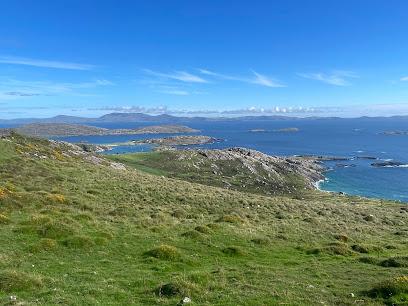
Cahergal Stone Fort
Explore the ancient Cahergal Stone Fort in Co. Kerry, a breathtaking historical landmark surrounded by stunning landscapes and rich Irish heritage.
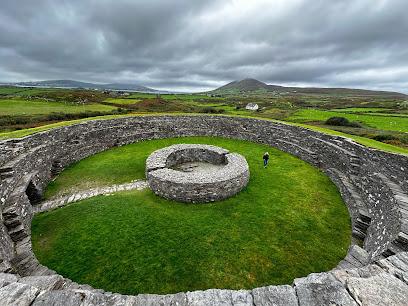
Foxy John's
Experience the vibrant spirit of Irish culture at Foxy John's, Dingle's iconic pub offering local cuisine and live music.
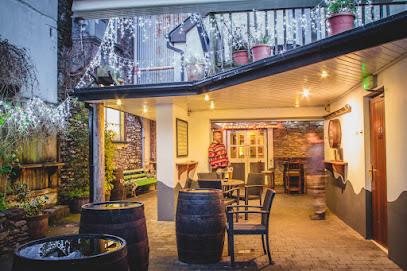
Skellig Michael Tours - Skellig Michael Landing Tours and Boat Tours - Casey's Skellig Island Tours
Experience the breathtaking beauty and rich heritage of Portmagee Marina, your gateway to the iconic Skellig Michael tours in County Kerry.
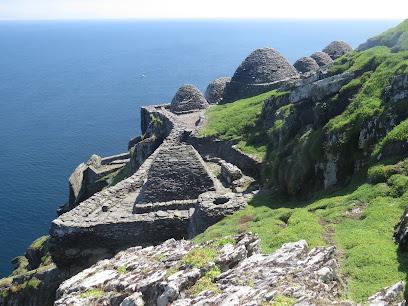
Valentia Island Lighthouse
Explore the Valentia Island Lighthouse, a historic gem with breathtaking ocean views and rich maritime heritage on Ireland's picturesque Valentia Island.
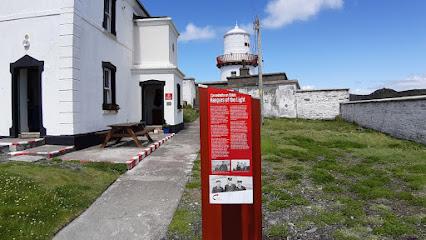
Derrynane House
Discover the historic charm of Derrynane House, a national museum showcasing the legacy of Daniel O'Connell amidst breathtaking landscapes in Co. Kerry.
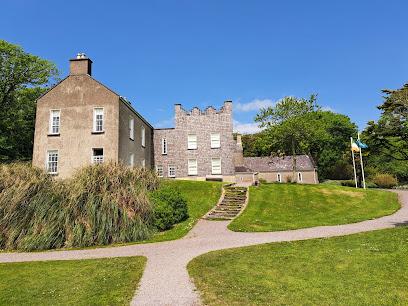
Essential places to dine
The Fish Box / Flannery's Seafood Bar
Experience the freshest seafood in Dingle at The Fish Box - where local flavors meet coastal charm.
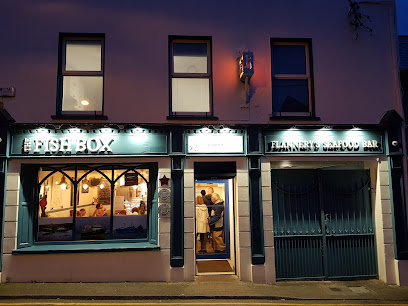
Dick Mack's Pub
Experience the authentic spirit of Ireland at Dick Mack's Pub in Dingle - where craft beer meets rich heritage.
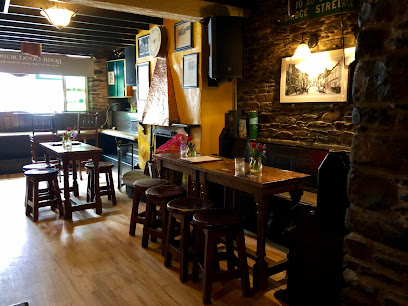
The Dingle Pub
Discover authentic Irish culture at The Dingle Pub with delightful food and lively music in the heart of Co. Kerry.
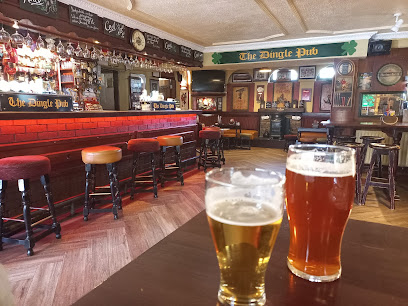
Murphy's Pub, Bed & Breakfast
Discover the charm of Dingle at Murphy's Pub & B&B - where traditional Irish hospitality meets modern comfort.
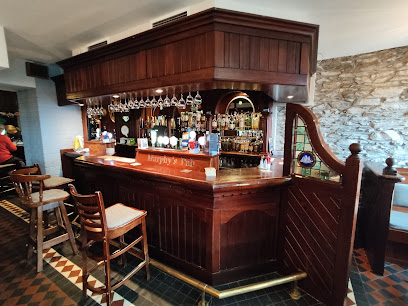
John Benny's Pub
Discover the essence of Irish culture at John Benny's Pub in Dingle—where great food meets live music in a warm atmosphere.
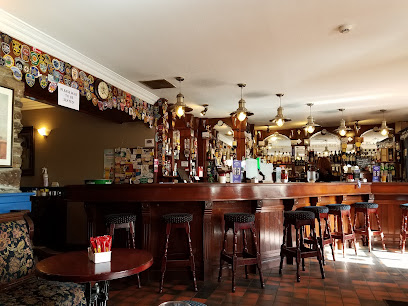
Out of the Blue
Experience unparalleled seafood dining at Out of the Blue in Dingle - where freshness meets tradition in every bite.
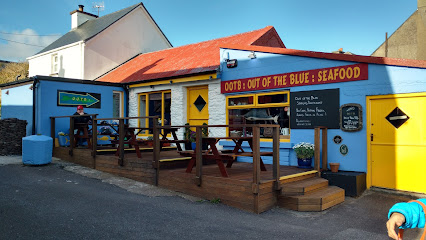
Paul Geaney's Bar & Restaurant
Discover authentic Irish flavors at Paul Geaney's Bar & Restaurant in Dingle – where every meal is a celebration of local ingredients.
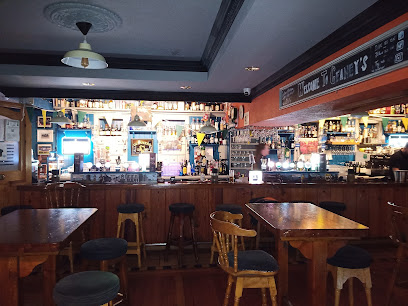
The Boatyard Restaurant
Experience exquisite seafood dining in Dingle at The Boatyard Restaurant—where fresh flavors meet breathtaking views.
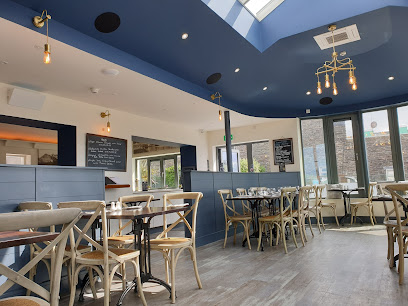
James Long Gastro Pub
Experience the taste of Ireland at James Long Gastro Pub in Dingle - where tradition meets flavor in a cozy atmosphere.
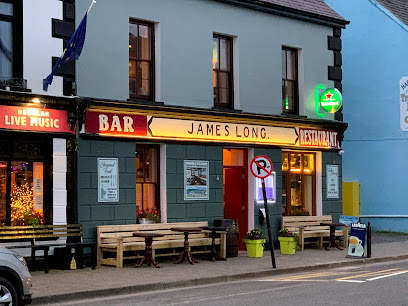
Marina Inn
Discover authentic Irish cuisine and hospitality at Marina Inn in Dingle - where every meal is an experience.
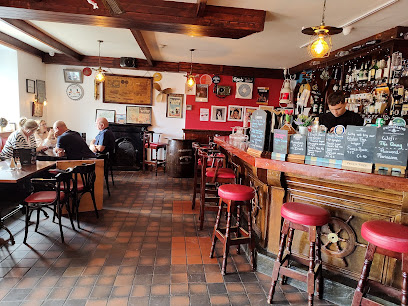
The Dingle Diner
Discover The Dingle Diner: Your gateway to authentic Irish comfort food in the heart of scenic Dingle.
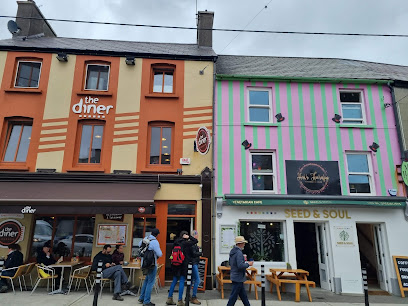
Danno's Restaurant & Bar
Discover authentic Irish cuisine at Danno's Restaurant & Bar in Dingle—where every meal is a celebration of local flavors.
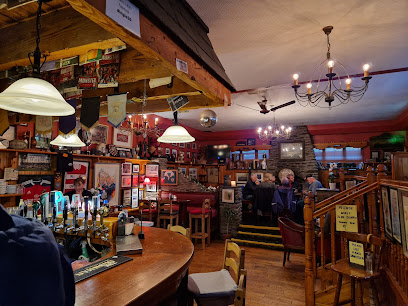
Harrington's Restaurant
Experience the essence of Ireland at Harrington's Restaurant with authentic dishes crafted from local ingredients in the heart of Dingle.
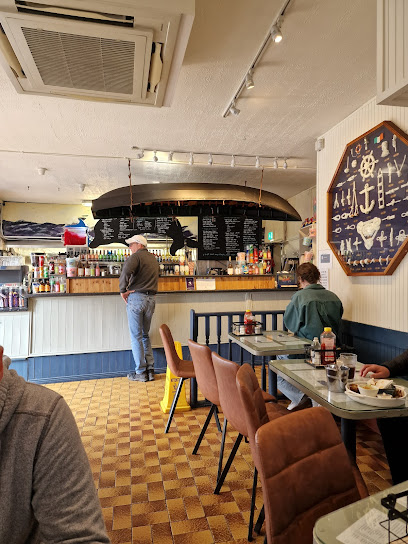
Dingle Bay Hotel
Discover unmatched hospitality at Dingle Bay Hotel - where comfort meets stunning coastal views in picturesque Dingle.
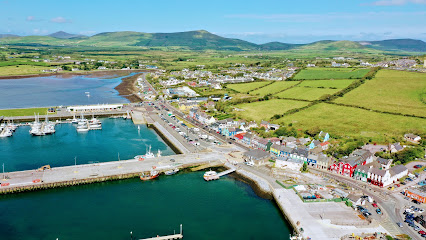
Doyle's Seafood Restaurant Dingle Ireland
Experience authentic Irish seafood at Doyle's Seafood Restaurant in Dingle – where freshness meets tradition.
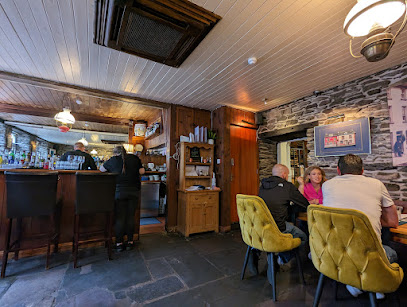
Markets, malls and hidden boutiques
Garvey's SuperValu Dingle
Explore Garvey's SuperValu Dingle for fresh local produce, artisanal baked goods, and a taste of authentic Irish culinary delights.
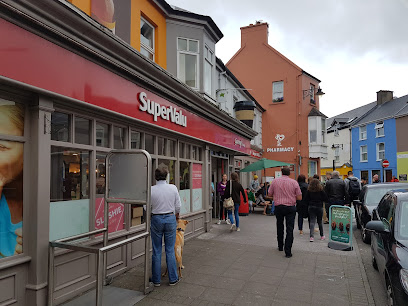
Lidl
Discover the best of Irish groceries and local treats at Lidl in Dingle, your go-to supermarket for quality and value.
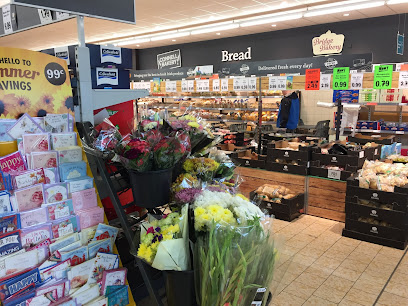
Strand House Dingle
Explore Strand House Dingle for unique clothing that reflects the charm of Co. Kerry's vibrant culture and stunning landscapes.
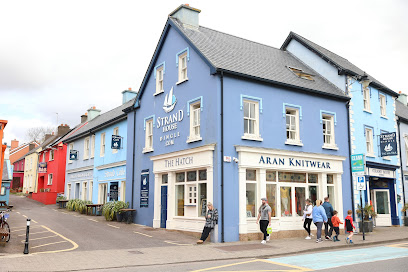
The Little Cheese Shop
Discover the rich flavors of Irish cheese at The Little Cheese Shop in Dingle, a must-visit for culinary enthusiasts and tourists alike.
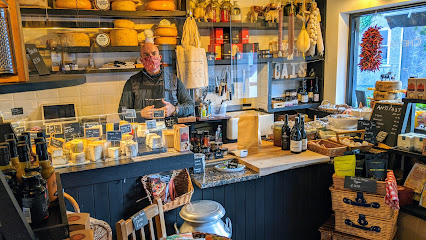
OUTWEST Clothing
Discover OUTWEST Clothing in Dingle for premium outdoor apparel, local designs, and expert advice on exploring Ireland's stunning landscapes.
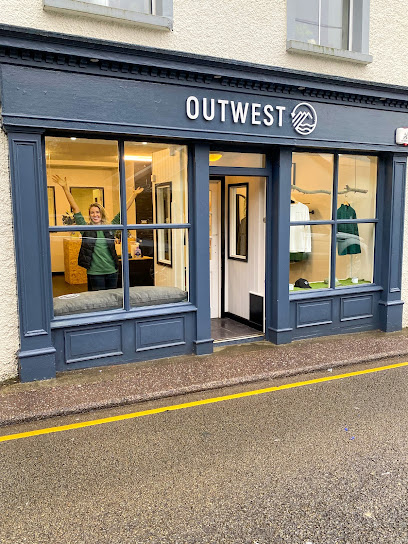
Dingle Bookshop
Explore a literary treasure trove at Dingle Bookshop, a cozy haven for book lovers in the heart of Dingle, Ireland.
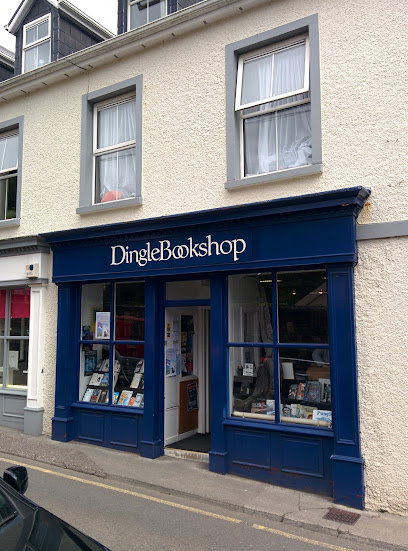
Dingle Crystal
Discover the artistry of hand-cut crystal at Dingle Crystal, a unique craft store in the heart of Dingle, Co. Kerry, celebrating Irish heritage.
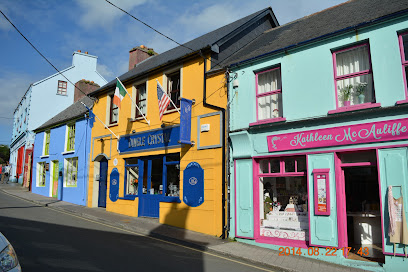
UNIQUE IRELAND PHONE & GIFT SHOP
Explore the Unique Ireland Phone & Gift Shop in Dingle for the best in mobile connectivity and authentic Irish gifts.
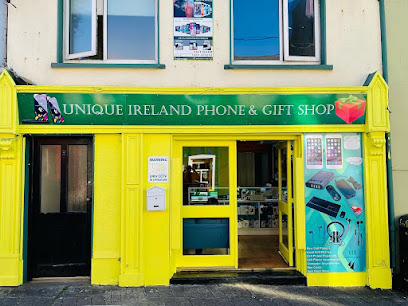
Morans Supermarket
Discover the best local flavors at Morans Supermarket, your essential shopping destination in Dingle, County Kerry.
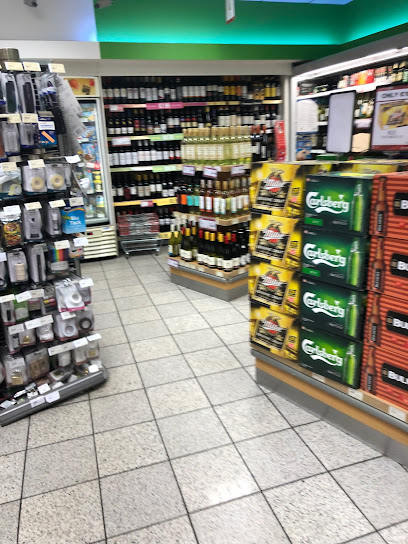
The Dingle Woollen Company - Gift/Knitwear Shop
Explore authentic Irish gifts and exquisite knitwear at The Dingle Woollen Company, your go-to shop in Dingle, Co. Kerry.
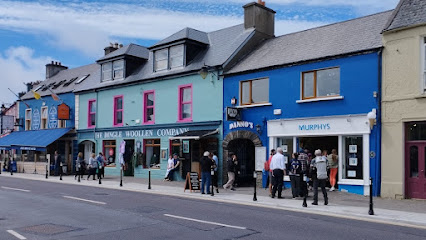
Kathleen McAuliffe
Discover unique fashion accessories at Kathleen McAuliffe in Dingle, Co. Kerry - a must-visit for style-savvy travelers.
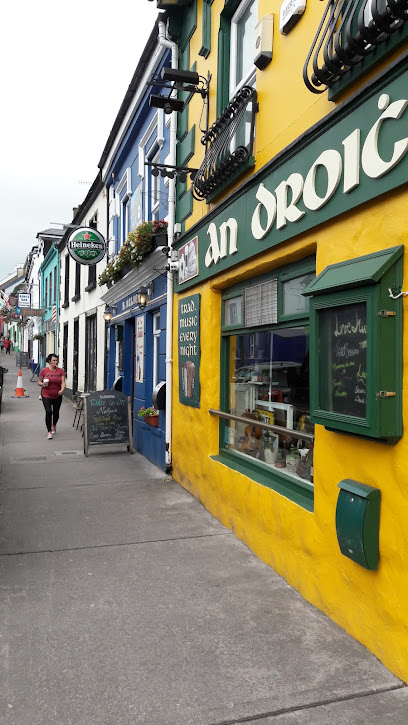
Centra Dingle
Explore the charm of Dingle at Centra, your go-to convenience store for local treats, essentials, and delicious takeaways in the heart of Co. Kerry.
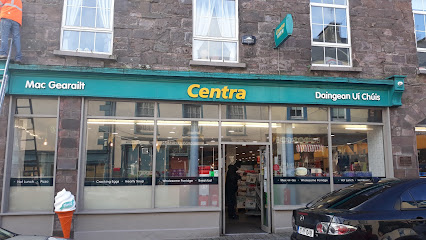
Dingle Record Shop
Explore the heart of Dingle's music scene at Dingle Record Shop, where vinyl treasures and local tunes await every music lover.
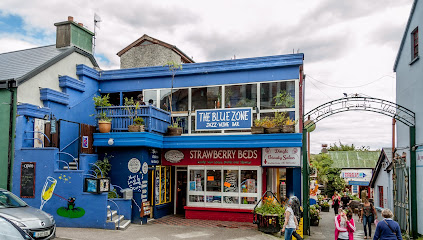
The Coach House
Discover unique Irish craftsmanship at The Coach House in Dingle, where interior design meets a charming gift shop.
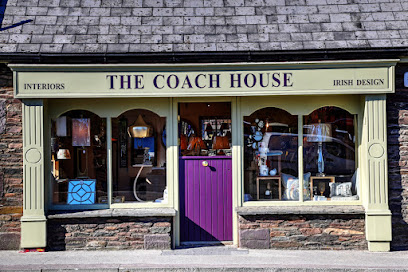
The Dolphin Shop
Discover unique treasures at The Dolphin Shop in Dingle, where every souvenir tells a story and captures the spirit of Ireland.
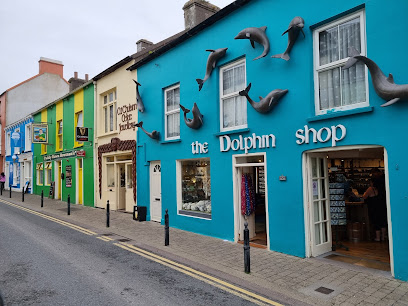
Essential bars & hidden hideouts
Dick Mack's Pub
Experience authentic Irish culture at Dick Mack's Pub in Dingle, where local brews and vibrant music create unforgettable memories.
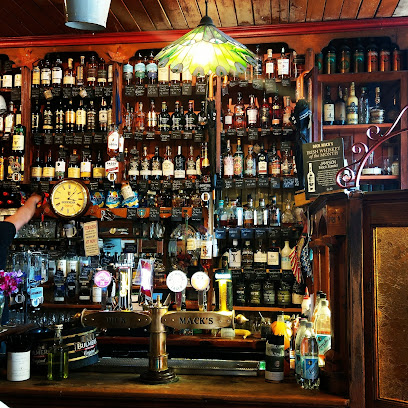
The Dingle Pub
Experience the warmth of Irish hospitality at The Dingle Pub, where traditional music and hearty cuisine create unforgettable moments.
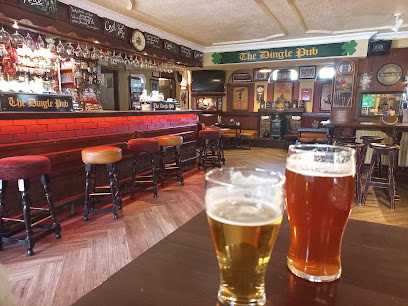
Foxy John's
Discover the unique charm of Foxy John's, a historic pub in Dingle offering delicious food, local brews, and vibrant live music.
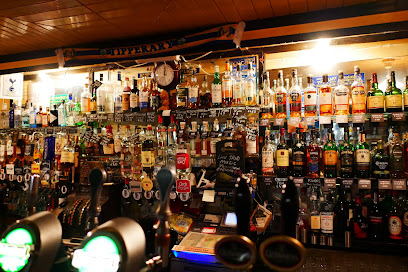
John Benny's Pub
Discover the heart of Dingle's nightlife at John Benny's Pub, where delicious food, local brews, and live music await.
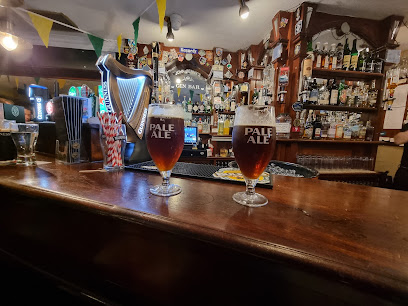
Paul Geaney's Bar & Restaurant
Discover the heart of Dingle at Paul Geaney's Bar & Restaurant, where Irish hospitality meets delicious grill cuisine.
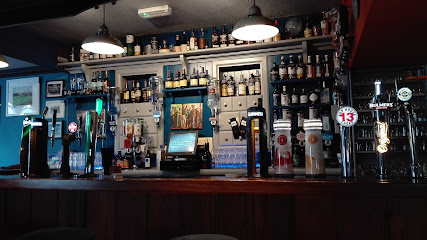
James Long Gastro Pub
Experience the best of Dingle's local cuisine at James Long Gastro Pub, where fresh flavors meet a warm Irish welcome in a vibrant setting.
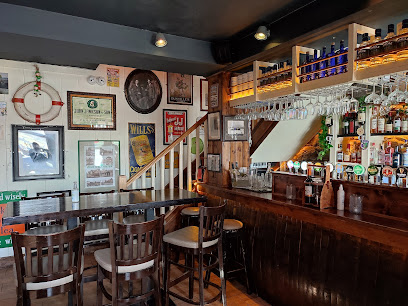
Marina Inn
Discover the heart of Dingle at Marina Inn, where traditional Irish cuisine meets warm hospitality in a lively pub atmosphere.
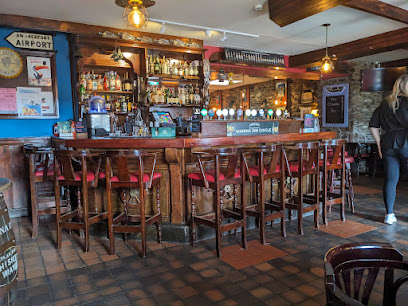
Danno's Restaurant & Bar
Experience the best of Irish cuisine at Danno's Restaurant & Bar, where local flavors meet a warm, inviting atmosphere in Dingle.
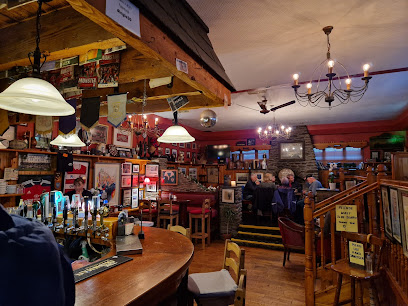
An Droichead Beag
Discover An Droichead Beag, a lively Dingle pub known for local brews, delicious fare, and captivating live music that embodies the spirit of Ireland.
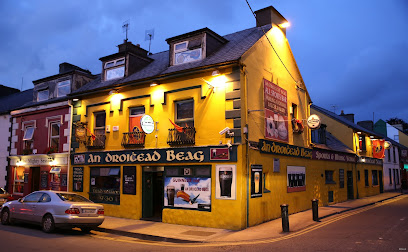
O'Flaherty's Bar
Experience authentic Irish hospitality at O'Flaherty's Bar in Dingle, where great drinks and live music create unforgettable memories.
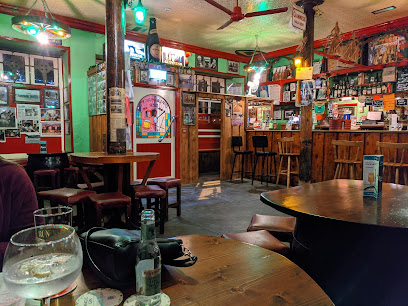
O'Sullivan's Courthouse Pub
O'Sullivan's Courthouse Pub in Dingle: A delightful blend of authentic Irish culture, live music, and hearty fare in a welcoming atmosphere.
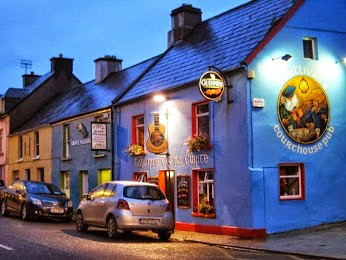
Paudie's Bar
Discover the heart of Dingle at Paudie's Bar, where traditional Irish charm meets modern hospitality in a vibrant setting.
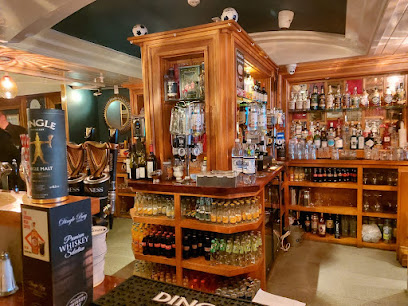
Curran's
Experience the charm of Curran's Pub in Dingle, where traditional Irish hospitality meets delicious food and lively music.
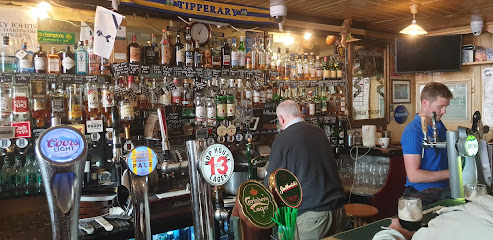
Neligan's Bar
Discover the heart of Dingle at Neligan's Bar, where Irish culture, friendly faces, and great drinks come together in a warm and inviting atmosphere.
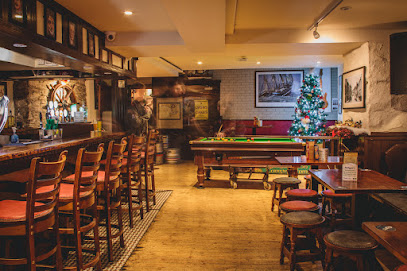
Bob Griffin’s Bar Dingle
Discover Bob Griffin’s Bar: A vibrant Irish bar in Dingle with a fantastic beer garden and a welcoming atmosphere perfect for tourists.
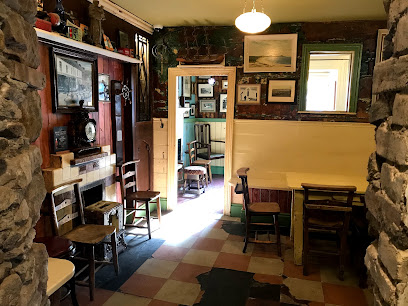
Local Phrases
-
- HelloDia dhuit
[dee-uh gwitch] - GoodbyeSlán
[slawn] - YesTá
[taw] - NoNíl
[neel] - Please/You're welcomeLe do thoil
[leh duh hull] - Thank youGo raibh maith agat
[gur-uv mah ag-ut] - Excuse me/SorryGabh mo leithscéal
[gav muh lesh-kale] - How are you?Conas atá tú?
[kun-us ah-taw too] - Fine. And you?Tá mé go breá. Agus tú?
[taw may goh brah. ah-gus too] - Do you speak English?An bhfuil Béarla agat?
[ahn will bayr-lah ag-ut] - I don't understandNí thuigim
[nee hug-im]
- HelloDia dhuit
-
- I'd like to see the menu, pleaseBa mhaith liom an mheonú a fheiceáil, le do thoil
[bah wah lyum ahn vee-on-oo ah eck-aw-il, leh duh hull] - I don't eat meatNí ithim feoil
[nee ih-him foh-il] - Cheers!Sláinte!
[slawn-cheh] - I would like to pay, pleaseBa mhaith liom íoc, le do thoil
[bah wah lyum ee-uk, leh duh hull]
- I'd like to see the menu, pleaseBa mhaith liom an mheonú a fheiceáil, le do thoil
-
- Help!Cabhair!
[kow-er] - Go away!Imigh uaim!
[ih-mee oy-um] - Call the Police!Glaoigh ar na Gardaí!
[glay-ig air na gar-dee] - Call a doctor!Glaoigh ar dochtúir!
[glay-ig air duck-too-er] - I'm lostTá mé caillte
[taw may kyle-te] - I'm illTá mé tinn
[taw may tin]
- Help!Cabhair!
-
- I'd like to buy...Ba mhaith liom ceannach...
[bah wah lyum kyawn-uk] - I'm just lookingNíl mé ach ag féachaint
[neel may akh egg fay-khent] - How much is it?Cé mhéad atá air?
[kay vade ah-taw er] - That's too expensiveTá sé ró-dhaor
[taw shay roh-yare] - Can you lower the price?An féidir leat an praghas a laghdú?
[ahn fay-dur lat ahn prug-uss ah lah-goo]
- I'd like to buy...Ba mhaith liom ceannach...
-
- What time is it?Cén t-am é?
[kane tahm ay] - It's one o'clockTá sé a haon a chlog
[taw shay ah hayn ah khlug] - Half past (10)Leathuair tar éis a deich
[lah-hoo-er tar es ah deh] - MorningMaidin
[mah-djin] - AfternoonTráthnóna
[traw-noh-nah] - EveningTráthnóna
[traw-noh-nah] - YesterdayInné
[in-yay] - TodayInniu
[in-yoo] - TomorrowAmárach
[ah-maw-rakh] - 1Aon
[ayn] - 2Dó
[doh] - 3Trí
[tree] - 4Ceathair
[cah-her] - 5Cúig
[koo-ig] - 6Sé
[shay] - 7Seacht
[shokht] - 8Ocht
[ukht] - 9Naoi
[nee] - 10Deich
[deh]
- What time is it?Cén t-am é?
-
- Where's a/the...?Cá bhfuil an...?
[kaw will ahn] - What's the address?Cén seoladh atá air?
[kane shohl-ah ah-taw er] - Can you show me (on the map)?An féidir leat mé a thaispeáint (ar an léarscáil)?
[ahn fay-dur lat may ah hash-paynt (er ahn lay-er-skawl)] - When's the next (bus)?Cathain atá an chéad (bus) eile?
[kah-hin ah-taw ahn khay-ad (bus) el-eh] - A ticket (to ....)Ticéad (go dtí ....)
[tick-ayd (guh dee)]
- Where's a/the...?Cá bhfuil an...?
History of Dingle
-
Dingle's history can be traced back to prehistoric times, with evidence of human settlement in the area dating back to the Mesolithic period. Archaeological finds, including stone tools and ancient burial sites, suggest that the region has been inhabited for thousands of years. The promontory forts and standing stones scattered across the Dingle Peninsula bear testament to these early settlers' presence.
-
Christianity made its mark on Dingle in the 5th century AD, with the establishment of several early monastic sites. The Gallarus Oratory, a remarkable dry-stone church dating from this period, stands as a testament to the region's early Christian heritage. Monks from this era played a crucial role in preserving knowledge through the Dark Ages by copying manuscripts and fostering learning.
-
In the 12th century, Dingle and the surrounding areas came under the influence of the Normans, who introduced new architectural styles and administrative systems. The construction of defensive structures, such as castles, marked this period. The Normans also established trade routes, which would later prove vital for Dingle's development as a major port town.
-
By the 13th century, Dingle had become one of Ireland's principal ports. Its strategic location on the southwest coast made it a hub for trade, particularly with Spain. The town thrived during this period, exporting fish, wool, and hides, and importing wine and other goods. The influence of Spanish merchants is still evident today in the town's architecture and cultural ties.
-
In 1580, during the Second Desmond Rebellion, Dingle was the site of a significant siege. English forces, aiming to quash the rebellion led by the Earl of Desmond, laid siege to the town. The conflict resulted in considerable destruction, but the town eventually recovered and continued to grow as a center of trade and commerce.
-
The Great Famine of the mid-19th century had a profound impact on Dingle, as it did on all of Ireland. The potato blight led to widespread starvation and emigration. Many families from Dingle left for America in search of a better life. The population of the town and surrounding areas declined dramatically during this period.
-
In the late 19th and early 20th centuries, there was a resurgence of interest in Irish culture and language. Dingle, located in a Gaeltacht (Irish-speaking) region, played a crucial role in this cultural revival. Efforts to preserve and promote the Irish language have continued to the present day, making Dingle a vibrant center for Irish language education and cultural activities.
-
Today, Dingle is renowned for its stunning landscapes, rich cultural heritage, and vibrant arts scene. The town has become a popular destination for tourists seeking to experience traditional Irish music, festivals, and crafts. The annual Dingle International Film Festival and the Other Voices music event are just two examples of how the town continues to celebrate and promote its unique cultural identity.
Dingle Essentials
-
Dingle is situated on the Dingle Peninsula in County Kerry, Ireland. The most convenient way to reach Dingle is by flying into Kerry Airport, which is around 50 kilometers away. From the airport, you can rent a car or take a taxi to Dingle. Alternatively, you can fly into Shannon Airport or Cork Airport, both of which are about a 2-3 hour drive from Dingle. Bus services operated by Bus Éireann also connect Dingle with major cities like Tralee and Killarney.
-
Dingle is a small town, making it easy to explore on foot. For longer trips around the peninsula, you can rent a car from one of the local rental agencies. Bicycles are also a popular choice for those looking to enjoy the scenic routes. There are local taxis available, and a limited bus service connects Dingle to nearby towns and villages. However, having your own vehicle will give you the most flexibility.
-
The official currency in Ireland is the Euro (EUR). Credit and debit cards are widely accepted in hotels, restaurants, and shops in Dingle. However, it is advisable to carry some cash, especially when visiting rural areas or smaller establishments. ATMs are available in Dingle, so you can easily withdraw cash if needed.
-
Dingle is generally a safe destination for tourists. However, as with any travel destination, it's important to take standard precautions. Avoid walking alone late at night in unfamiliar areas and keep an eye on your belongings in crowded places. There are no specific high-crime areas targeting tourists in Dingle, but it is always best to stay vigilant and aware of your surroundings.
-
In case of an emergency, dial 999 or 112 for immediate assistance. There is a local Garda (police) station and a medical center in Dingle that can provide assistance. It is recommended to have travel insurance that covers medical emergencies. For minor health issues, there are pharmacies in town where you can purchase over-the-counter medications.
-
Fashion: Do wear comfortable clothing and sturdy shoes, especially if you plan to explore the rugged terrain. Avoid overly casual attire when dining in nicer restaurants. Religion: Do respect local customs and traditions. Many sites are of religious significance, so dress modestly when visiting churches. Public Transport: Do be courteous and offer your seat to elderly passengers. Don't eat or drink on public transport. Greetings: Do greet people with a friendly 'hello' or 'hi'. A handshake is common when meeting someone for the first time. Eating & Drinking: Do try the local seafood and traditional dishes. Don't refuse hospitality, as it is considered impolite.
-
To experience Dingle like a local, visit the weekly farmers' market where you can buy fresh produce and artisanal goods. Engage with locals in the pubs, as they are often friendly and willing to share stories about the town's history and culture. Don't miss taking a boat tour to see Fungie the Dolphin, a beloved local attraction. For a unique experience, attend a traditional Irish music session at one of the local pubs.
Trending Landmark in Dingle
-
Dingle Oceanworld Aquarium
-
Dick Mack's Pub
-
Dingle Dolphin Boat Tours
-
Murphy's Pub, Bed & Breakfast
-
Murphys Ice Cream
-
Out of the Blue
-
Paul Geaney's Bar & Restaurant
-
The Boatyard Restaurant
-
Dingle Sea Safari
-
Danno's Restaurant & Bar
-
An Droichead Beag
-
Conor Pass waterfall
-
O'Sullivan's Courthouse Pub
-
Dingle Boat Tours
-
Fairy Fort Ringfort
Nearby Cities to Dingle
-
Things To Do in Tralee
-
Things To Do in Killarney
-
Things To Do in Ennis
-
Things To Do in Limerick
-
Things To Do in Cork
-
Things To Do in Kinsale
-
Things To Do in Salthill
-
Things To Do in Galway
-
Things To Do in Westport
-
Things To Do in Athlone
-
Things To Do in Kilkenny
-
Things To Do in Waterford
-
Things To Do in Wexford
-
Things To Do in Sligo
-
Things To Do in Dublin













